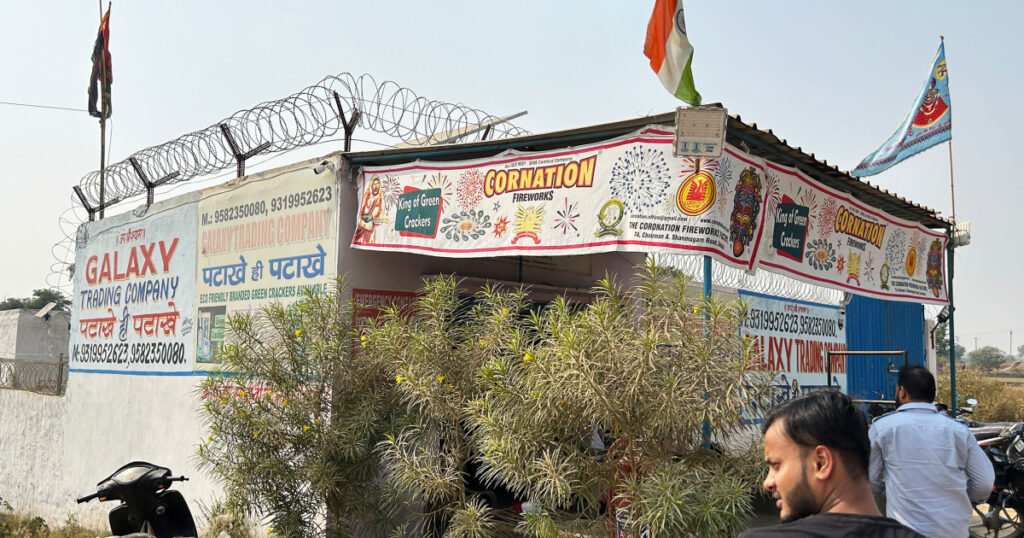“We couldn’t find them (firecrackers) anywhere else in Delhi, so we had to come here,” said Aditya Verma, 23, who had about $160 worth of fireworks packed into his bike bag. ) said.
Jain, who opened the shop in 2014, also laments the government’s crackdown on crackers.
“When the new government was formed, weren’t there people who set off firecrackers? Didn’t that cause pollution?” he said. “People only use it for a few hours on Diwali.”
“Everyone is scared about pollution,” Jain added.
Meteorologist Gufran Baig, a professor at the National Institute of Advanced Study at the Indian Institute of Science in Bengaluru, doesn’t think banning polluting firecrackers is a bad thing, at least for Delhi.
“Delhi is in a difficult situation as it suffers from multiple sources of emissions,” Baig said.
“With the worsening climate situation, Delhi is already in trouble due to local sources such as vehicles. The severe weather around Diwali has added to the misery,” he added.
But it’s not just pollution that officials are concerned about.
Explosions at fireworks shops and events are reported almost every Diwali festival. A massive explosion at a temple festival in southern India on Monday injured more than 150 people, news agency PTI reported. Last year, eight people died at a fireworks factory, and in 2018, a fire at another factory killed 17 workers, the Associated Press reported.
In Farooq Nagar, Muhammad Naim acknowledged the risk of fire and accidents, but lamented the loss of craftsmanship as a result of the ban.
“There has certainly been economic progress, but the Atishvaz are lagging behind,” Naim, 50, said, referring to his community’s nickname.
Like Hamid, Naim’s family has been making and selling firecrackers for generations. But since his manufacturing permit was revoked 10 years ago, he says he has struggled to find work, mainly as a manual laborer.
“We’re all thrown around in life,” Naim says.
“At my peak, I was feeding 35 families,” he added. “Now other family members feed me.”



